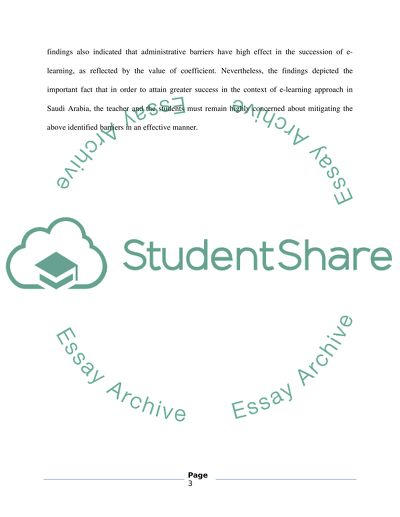Cite this document
(“E-Learning Thesis Example | Topics and Well Written Essays - 2500 words”, n.d.)
Retrieved de https://studentshare.org/education/1675827-e-learning
Retrieved de https://studentshare.org/education/1675827-e-learning
(E-Learning Thesis Example | Topics and Well Written Essays - 2500 Words)
https://studentshare.org/education/1675827-e-learning.
https://studentshare.org/education/1675827-e-learning.
“E-Learning Thesis Example | Topics and Well Written Essays - 2500 Words”, n.d. https://studentshare.org/education/1675827-e-learning.


